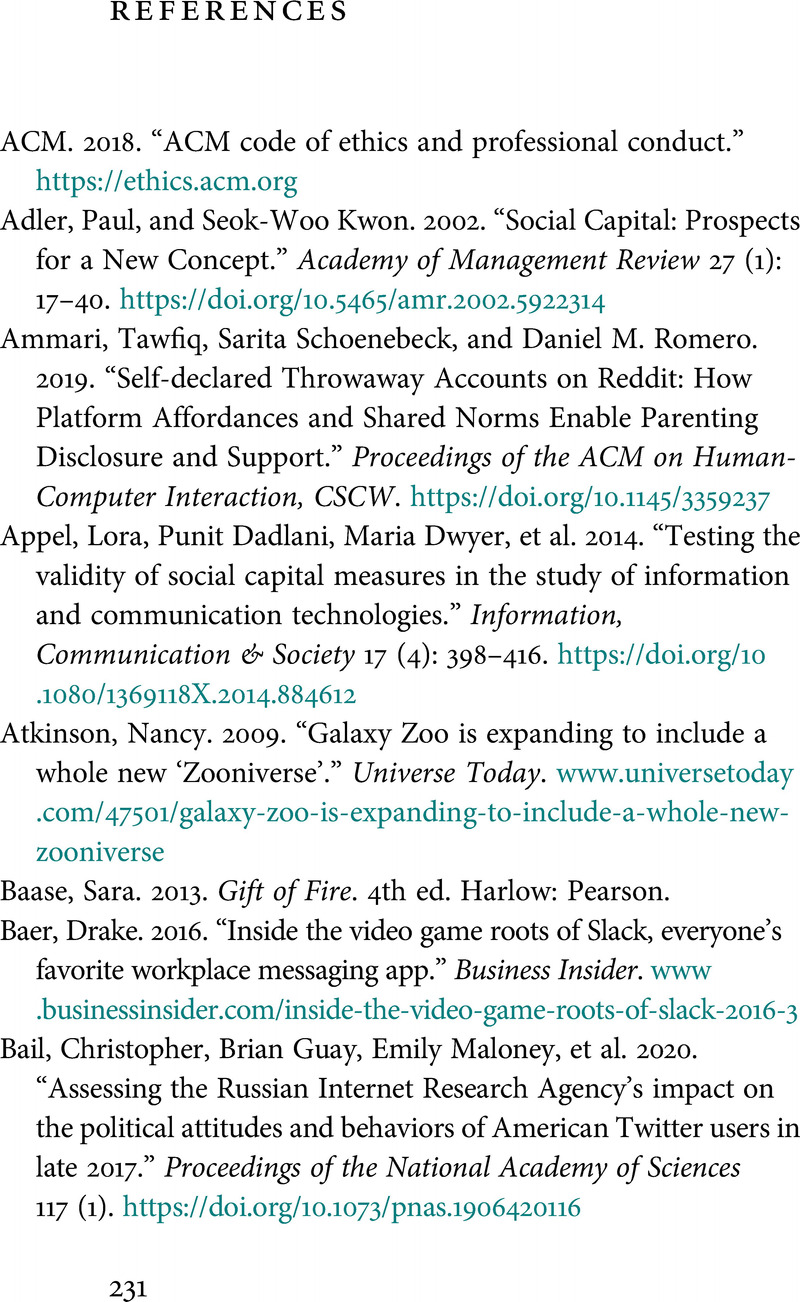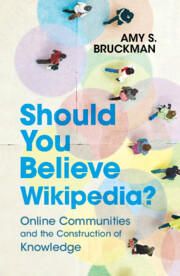Book contents
- Should You Believe Wikipedia?
- Should You Believe Wikipedia?
- Copyright page
- Dedication
- Contents
- Acknowledgments
- Introduction Design and Social Behavior
- 1 Are Online “Communities” Really Communities?
- 2 What Can Online Collaboration Accomplish?
- 3 Should You Believe Wikipedia?
- 4 How Does the Internet Change How We Think?
- 5 How Do People Express Identity Online, and Why Is This Important for Online Interaction?
- 6 What Is Bad Online Behavior, and What Can We Do About It?
- 7 How Do Business Models Shape Online Communities?
- 8 How Can We Help the Internet to Bring Out the Best in Us All?
- References
- Index
- References
References
Published online by Cambridge University Press: 13 January 2022
- Should You Believe Wikipedia?
- Should You Believe Wikipedia?
- Copyright page
- Dedication
- Contents
- Acknowledgments
- Introduction Design and Social Behavior
- 1 Are Online “Communities” Really Communities?
- 2 What Can Online Collaboration Accomplish?
- 3 Should You Believe Wikipedia?
- 4 How Does the Internet Change How We Think?
- 5 How Do People Express Identity Online, and Why Is This Important for Online Interaction?
- 6 What Is Bad Online Behavior, and What Can We Do About It?
- 7 How Do Business Models Shape Online Communities?
- 8 How Can We Help the Internet to Bring Out the Best in Us All?
- References
- Index
- References
Summary

- Type
- Chapter
- Information
- Should You Believe Wikipedia?Online Communities and the Construction of Knowledge, pp. 231 - 252Publisher: Cambridge University PressPrint publication year: 2022



